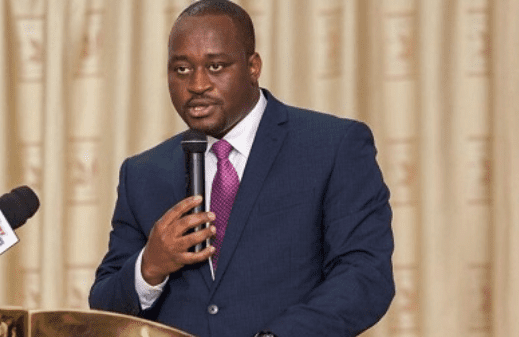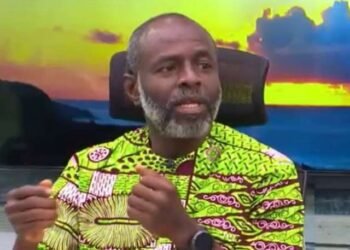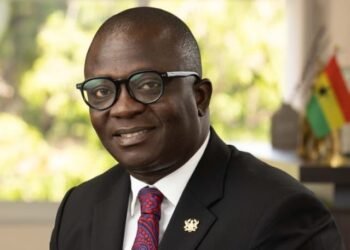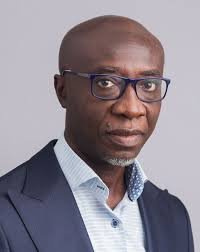Renowned economist and Senior Fellow at the IMANI Centre for Policy and Education, Dr. Theo Acheampong, has publicly endorsed the government’s decision to channel oil revenues under the Annual Budget Funding Amount (ABFA) into major road infrastructure projects.
Dr. Acheampong’s support comes in response to growing debate over the equity and legality of the policy, particularly after recent remarks by NPP Member of Parliament for Akyem Swedru, Hon. Kennedy Nyarko Osei, who raised concerns over the perceived silence of civil society on the matter.
Speaking directly to the issues raised, Dr. Acheampong stated that the decision to allocate ABFA funds to significant infrastructure such as the Accra-Kumasi Highway reflects longstanding demands by civil society organisations (CSOs).
“Actually, a lot of my colleagues in the CSO community wouldn’t make ‘noise’ because this is what we’ve been arguing for since oil production began in 2010.
“To dedicate more of these natural resource revenues for big-ticket infrastructure projects that generate economic and social returns rather than thinly spreading it as we’ve done. It is not rocket science.”
Dr. Theo Acheampong
Dr. Acheampong pointed to the Petroleum Revenue Management Act (PRMA), particularly the provisions concerning the ABFA, which explicitly allow for such investments in capital infrastructure.

He emphasised that this reallocation does not imply that all of Ghana’s oil wealth is being funnelled into one project, but rather that the specific ABFA allocation, which forms part of the petroleum holding fund, is being redirected in a legally consistent and economically strategic manner.
“It is the same ABFA, which was used for Agenda 111, Free SHS and others, that is being dedicated to big ticket infrastructure rather than all of Ghana’s oil money as being painted here in this post. Other PRMA allocations like the Stabilisation and Heritage Funds are not affected.”
Dr. Theo Acheampong
NPP MP’s Objection
Dr. Acheampong’s intervention came shortly after a strongly worded critique by Hon. Kennedy Nyarko Osei, who accused civil society of double standards.
The MP argued that if the previous NPP government had proposed dedicating all oil revenues in the budget to constructing hospitals or completing projects like the Suame Interchange, the public backlash would have been swift and harsh.
“Today everyone is quiet because it’s not the NPP that is seeking to use the oil revenues in the budget allocations to only construct roads with zero allocations to other critical sectors,” Hon. Osei said, describing the national atmosphere as one of “hypocrisy” and “interest-driven individuals.”
The MP defended the NPP’s record, noting that their application of oil revenues to support the Free Senior High School policy faced considerable criticism from civil society groups and political commentators.

“When the Akufo-Addo Government decided to apply part of the oil revenues to support the education of our children in the senior high school, we all saw the noise and the attacks on the Government. Today, those who led such a clandestine scheme and attacks are all quiet.”
Hon. Kennedy Nyarko Osei
Theo Acheampong’s Rebuttal: Strategic Investment
However, Dr. Acheampong offered a different lens. For him, the current use of ABFA to fund transformative infrastructure is exactly the sort of strategic investment the PRMA was designed to support.
The problem, in his view, lies not in which administration uses the funds but how they are applied. He cited the consistent breaches of the capital expenditure requirement under the previous government as evidence of misplaced priorities. “Check the PRMA as amended — the letter and spirit of this is there in the ABFA provisions,” he maintained.
It is worth noting that the PRMA initially required that a minimum of 70% of the ABFA be spent on public investment expenditure. However, this stipulation was routinely flouted by the NPP administration, which critics argue diverted the funds towards recurrent expenditure and politically expedient programmes without adequate infrastructure returns.

The current administration, led by President John Dramani Mahama, has pledged to adhere strictly to the amended PRMA and use the ABFA to finance the “Big Push” infrastructure programme—a five-year, multibillion-dollar national development plan centred on road construction and other transformative capital projects.
This includes the long-delayed completion of the Accra-Kumasi highway, Eastern Corridor roads, and various interchanges deemed essential to economic competitiveness.
Dr. Acheampong’s endorsement provides technocratic support to the government’s approach. His position also reframes the conversation around consistency, legality, and development impact rather than partisan competition.
READ ALSO: Energy Ministry Urges Calm Over VRA, NEDCo Strike in Tamale





















